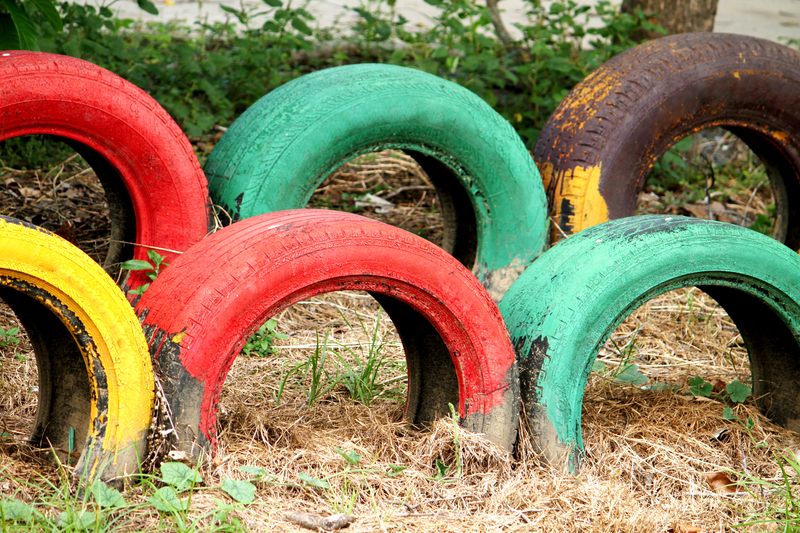Eco-Friendly Habits for Reducing Your Home's Waste
In today's fast-paced world, increasing household waste is a pressing environmental concern. As conscious homeowners, adopting eco-friendly habits for reducing home waste is essential for a sustainable future. This comprehensive guide covers practical tips, sustainable strategies, and simple lifestyle changes to help you minimize landfill contributions and create a greener home.
Why Reducing Household Waste Matters
Every piece of garbage thrown away has an environmental impact. Landfills produce harmful gases, pollute soil and water, and contribute to climate change. By developing eco-friendly waste reduction habits, you help conserve resources, reduce pollution, and support a healthier planet. Adopting sustainable practices not only benefits the environment but can also save money and foster a sense of community responsibility.

Getting Started: Rethink, Reduce, and Reuse
Building an eco-friendly home begins with the well-known 3Rs: Rethink, Reduce, and Reuse. Understanding these fundamental principles is the first step toward effective waste management.
- Rethink: Assess what you buy and use. Opt for products with minimal packaging, made from recycled or sustainable materials.
- Reduce: Cut down on consumption by choosing quality over quantity and avoiding single-use items.
- Reuse: Find new uses for items instead of discarding them. Reusing extends the life of products and diverts waste from landfills.
Actionable Eco-Friendly Habits for Minimizing Household Waste
1. Make Use of Composting
Composting is an effective eco-friendly waste reduction strategy. Instead of sending food scraps and yard waste to landfills, compost them at home to create a nutrient-rich soil amendment for your garden.
- Compostable materials: Fruit and vegetable peels, coffee grounds, eggshells, yard trimmings, and shredded paper.
- Benefits: Reduces methane emissions, enriches soil, and decreases the need for chemical fertilizers.
- Tip: Use a designated compost bin and maintain a balance between brown (carbon-rich) and green (nitrogen-rich) materials for optimal composting results.
2. Switch to Reusable Alternatives
A major step toward greener living is swapping single-use items with reusables. Not only do reusable products reduce waste, but they also save money over time.
- Reusable shopping bags: Replace plastic bags with cloth or jute bags.
- Water bottles and coffee cups: Invest in stainless steel or glass bottles and mugs.
- Cloth napkins and towels: Ditch paper napkins for washable cloth ones.
- Beeswax food wraps: Substitute plastic wrap with eco-friendly beeswax or silicone wraps.
3. Mindful Food Shopping and Consumption
Adopting mindful habits in your kitchen not only reduces food waste but also helps promote sustainable consumption.
- Plan meals: Create shopping lists and meal plans to avoid overbuying and spoilage.
- Store food properly: Use airtight containers and organize your fridge to ensure older items are used first.
- Repurpose leftovers: Transform leftovers into new dishes or freeze them for future meals.
Reducing household food waste directly shrinks your overall environmental footprint.
4. Embrace Recycling--But Do It Right
Recycling is a core eco-friendly habit for reducing household waste. However, improper recycling can cause contamination and send entire batches of recyclables to landfills.
- Know your local rules: Recycling programs differ by region. Check guidelines for what can and cannot be recycled.
- Clean recyclables: Rinse containers to remove food residues before recycling.
- Avoid 'wishcycling': Don't toss questionable items into recycling bins; it can do more harm than good.
*Proper recycling* ensures your waste reduction efforts have maximum impact.
5. Buy in Bulk - Reduce Packaging Waste
Excessive packaging is a significant contributor to landfill waste. Buying in bulk often means less plastic and cardboard packaging per product.
- Bring your own containers: For dry goods, spices, and liquids, bring jars or cloth bags to zero-waste stores.
- Prefer concentrated or refillable products: Eco-friendly cleaning supplies or personal care items often come in refillable containers.
Bulk buying both saves money and supports a zero-waste lifestyle.
6. Make Eco-Friendly Swaps in the Bathroom
The bathroom is often overlooked in waste reduction efforts, yet it offers ample opportunities for greener choices.
- Bamboo toothbrushes: Replace plastic toothbrushes with compostable bamboo alternatives.
- Shampoo bars: Switch bottled shampoos for solid bars packaged in paper or cardboard.
- Safety razors: Use stainless steel razors instead of disposable plastic ones.
- Reusable menstrual products: Invest in menstrual cups or washable pads.
7. Cut Down on E-Waste Responsibly
E-waste from electronics poses significant environmental hazards. An eco-conscious home minimizes electronic waste through thoughtful purchasing and disposal practices.
- Repair before replacing: Fix devices or seek professional repair services before discarding them.
- Donate or sell functioning electronics: Give gadgets a second life by passing them on to others.
- Recycle e-waste properly: Use certified e-waste recycling centers for safe disposal.
Eco-Friendly Habits: Household Waste Reduction Room By Room
Kitchen
- Compost food scraps and coffee grounds
- Store food in glass jars instead of plastic bags
- Choose bulk pantry items
- Use cloth towels instead of disposable paper
- Repurpose jars and bottles for food storage
Bathroom
- Opt for bar soap instead of liquid soap in plastic bottles
- Use refillable containers for shampoo, conditioner, and lotion
- Install a water-saving toilet and showerhead
- Recycle empty toiletry containers
Laundry Room
- Try soap nuts or biodegradable detergent sheets
- Wash full loads to minimize water and energy waste
- Hang clothes to dry instead of using a dryer
- Reuse greywater when possible for gardening
Outdoors & Garden
- Collect rainwater for irrigation
- Use mulch from yard waste and compost
- Plant native species requiring less maintenance
- Opt for solar lights to reduce energy use
Tips for Reducing Your Home's Waste Long-Term
- Educate your household: Make waste reduction a family goal; assign responsibilities and track progress.
- Set up designated recycling and compost stations: Make it easy for everyone to sort waste correctly.
- Opt for digital over paper: Pay bills online, utilize e-tickets, and go paperless whenever possible.
- Participate in community clean-up events: Encourage a broader eco-friendly ethos.
- Support sustainable brands: Purchase from companies with ethical sourcing and zero- or low-waste commitments.
Common Questions About Eco-Friendly Waste Reduction Habits
Is reducing household waste expensive?
Not necessarily! In many cases, embracing sustainable waste reduction habits saves money. Buying reusable products and avoiding single-use items leads to long-term savings. Composting and meal planning also reduce food bills.
What is the easiest first step?
Begin with small, manageable changes. Switching to reusable bags and water bottles, or setting up home recycling and compost bins are simple ways to start.
How do I encourage my family to participate?
Lead by example and present waste reduction as a fun, collective goal. Create family challenges, track waste reduction achievements, and celebrate milestones together.
Advanced Strategies for a Zero-Waste Home
1. Host a Swap Party
Organize neighborhood or friend group events where people exchange clothes, toys, books, or household items. This reduces purchasing new goods and prevents usable items from going to the landfill.
2. DIY Household Products
Make cleaning supplies, personal care products, and air fresheners at home using simple, non-toxic ingredients. *For example*, a mixture of vinegar, baking soda, and lemon can be highly effective for most cleaning tasks and helps minimize packaging waste.
3. Support Local and Package-Free Shops
Patronize farmer's markets, local bakers, and stores that allow you to bring your own containers. This habit not only reduces packaging but also supports your local economy and reduces your carbon footprint from long-distance product transportation.

The Environmental Impact: Why Every Household Matters
When multiplied by millions of households, small eco-friendly changes make a significant difference. Reducing home waste helps curb pollution, reduces the strain on landfill sites, and conserves precious natural resources. You also inspire others--your friends, neighbors, and community--to adopt sustainable habits.
Conclusion: Commit to Eco-Friendly Habits for Lasting Change
Transitioning to an eco-friendly, low-waste lifestyle is an ongoing journey, not an overnight change. With every small step--whether it's composting, mindful shopping, or opting for reusable alternatives--you play an essential role in the movement toward a greener, more sustainable future. Embrace these eco-friendly habits for reducing your home's waste, involve your family, and enjoy the undeniable rewards of living in harmony with the planet.
Start today: Choose one new sustainable waste reduction habit this week, and watch as small actions add up to a substantial positive impact!